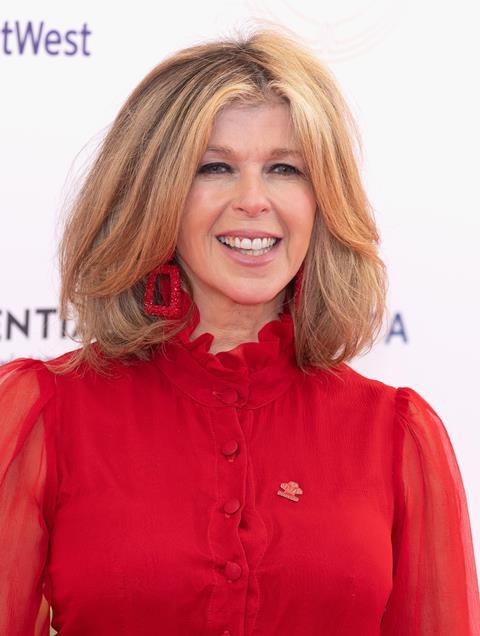Tania West lost her husband two years ago. In an open letter to the TV presenter whose husband died two months ago, Tania shares some encouragement in that she has found God to be faithful, even in deepest grief.

Dear Kate
You don’t know me, but we have something in common, in that share we the title of “widow”. I expect you have a deep desire for life to somehow morph into a new normal for you. In my experience, “normal” is over rated and this journey that we did not choose has an intensity about it with many unexpected twists and turns.
I have read many books on grief and am currently writing my own. I started writing it in the first year of being bereaved because I wanted to write from the middle of the storm not when all was calm and bright (if indeed it ever will be).
One of the greatest pieces of wisdom I gleaned that has affected all my choices since, is the idea that I can choose to go west and chase the setting sun, or to go east into the darkness and trust for the sun to rise again. Every inclination of my heart is to go west, but Kate, I have chosen to go east.
I have chosen to go to the difficult places, and here is what I have learnt so far:
One of the greatest pieces of wisdom I gleaned that has affected all my choices since, is the idea that I can choose to go west and chase the setting sun, or to go east into the darkness and trust for the sun to rise again.
1. To become my own best friend.
This means never apologising for my emotions, being respectful of my feelings and learning to listen to the truth they have to impart.
2. To appreciate that the body really does “keep the score”* and that the pain of loss is visceral and affects all of us.
I found that in the early days and weeks my body and emotions would respond without any cognitive evaluation. So, shaking, panicked feelings, inability to eat, inability to sleep, actual heart ache, became a lived reality which literally took my breath away. I have learned to listen to these “messages” and gently ask the different “parts” of me what the truth is that they want to me to know. I have become amazed at how much information our bodies actually give us when we take the time to listen in this way.
3. To recognise the pain and power of “firsts”.
Whether its the first anniversary or birthday or the first Christmas or Easter or just the first time you’ve had to deal with getting the car MOT’d, file a tax return, the first time you drive or walk somewhere familiar… the list goes on. Every single time you encounter a “first” it can feel deeply shocking. Understanding this, can help you be kind to yourself when you have a melt down (as you invariably will).
Every single time you encounter a “first” it can feel deeply shocking.
4. To ask for what I need.
To be fair I’ve always been good at this, but I’ve got so much better. I simply have no time for messing around, games play, or expecting those around me to be mind readers. I’ve instructed friends on how to lay their tables (please don’t put me on the end), bill paying (please be clear who is paying for what, because I now need to budget in a whole other way, well, to be honest I need to budget. Period.) in addition to letting friends know when I just need to process whilst they “hold the space” in a non judgmental way.
5. To recognise my own vulnerability.
There will come a time that a man will come into your life and tell you that you are beautiful (which you are) and wonderful (also true). They may even convince you they are “available”. Kate, be very careful. The desire for intimate connection is huge in the aftermath of loss and its easy to fall prey to scammers and men with less than honourable intent. Be wise. Seek the counsel of those you trust (even if they happen to be your own children - we have so much to learn from them too).
6. To be brutally honest with my friends.
Friends will try and be sensitive imagining that having dinner with couples might be awkward for you. What will happen, really gradually is that the balanced male/female friendships that you have always enjoyed will morph into a “female only” zone. Tell them when this happens and call it out. Don’t allow yourself to be relegated into a “special category” don’t allow yourself to be minimised.
7. To understand that I am a channel of love, peace, hope and not a container of it.
Even in the hardest places, when I have felt at my most desperate, I have still been able to be a blessing to others. This is because hope and faith is not dependent on what we have accumulated or how much space is in our “emotional tanks”, it is grounded in a living hope that simply requires a willingness to show up and be available. Don’t fall pray to the lie that you somehow need to have yourself completely together before you can reach out and help someone else.
Read more on facing death
My husband was told he had less than six months to live
8. To know that the presence of God is not some ethereal idea or theological premise but a grounded reality in the pain of it all.
I have been a Christian since I had my first “God encounter” at the age of 21. I have experienced God’s presence and love at times when I have felt a desperation that I have no words for. I have sworn, raged, lamented, shouted, accused - it’s what we call “prayer”. I have never felt more rooted, loved and totally accepted. I have been through what the psalmist calls the “valley of the shadow of death” and found him to be faithful.
9. To accept that my grief will always be the same size, the loss will always be a part of my life but that I will grow around it.
And so, dear Kate, will you.


































No comments yet